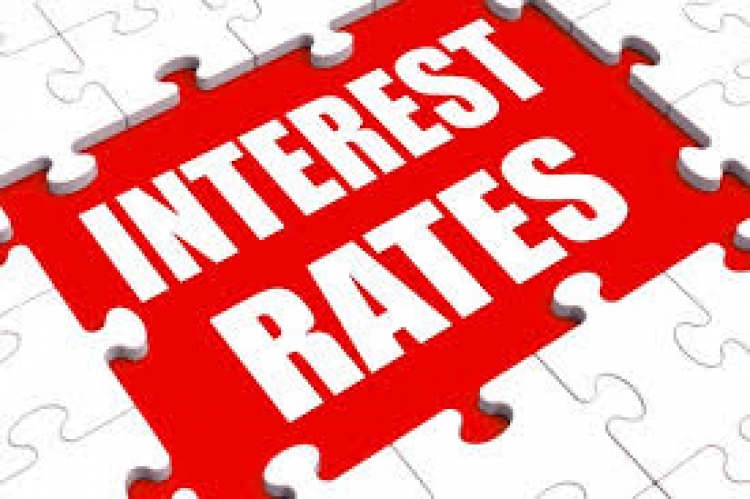Economy
SMEs Owners Employ 88% of Nigeria’s Workforce—Saraki


By Modupe Gbadeyanka
Nigeria’s Senate President, Mr Bukola Saraki, has revealed that owners of Small and Medium-scaled Enterprises (SMEs) employ about 88 percent of the country’s workforce.
Mr Saraki made this disclosure at the stakeholders roundtable organised by the Senate to address increasing interest rates in Nigeria in Abuja on Tuesday.
According to the Senate President, poultry and cassava farmers, welders, builders, fashion designers, filmmakers, shoemakers, furniture companies and other numerous SMEs deserve to be given a chance to stay alive and make a living for their families.
He said it was important for government to come up with a reasonable interest rate for the above set of people to make them stay afloat in their line of business to also help the economy.
The Senate President argued that making SMEs owners to pay 25-30 percent interest on loans taken from banks will lead to death of SMEs in the country because it would be impossible for them “to survive” with such.
“We must as a matter of deliberate policy frame our monetary policy regime towards support for businesses otherwise, our economy rescue mission may not be attained.
“It will be profoundly improbable to genuine businesses like agriculture, production and solid minerals to survive on interest rate regime of 30 percent.
“Let’s give a chance to our poultry and cassava farmers, welders, builders, our fashion designers, filmmakers, shoemakers, furniture companies and our other numerous small and medium sized industries a chance to stay alive and make a living for their families,” the Senate President begged.
He said, “These people; the SMEs, are the reason we are gathered here. These entrepreneurs employ 88 percent of our work force.
“They have demanded and we should find a means to give them a new interest rate. If we don’t, we will all be poorer for it. If we are able to, we will all ultimately benefit.”
Mr Saraki expressed confidence that, “With the calibre of people gathered here, we will find a workable solution that will put a halt on the current rising interest rates regime and return profitability viability to Nigerian enterprises.”
This, he said, “will be the beginning of a new era of prosperity and inclusive growth that we all yearn for. This is our only option if we are to build a virile private sector that will meet our developmental needs.”
Economy
Naira Trades N1,533/$1 at Official Market, N1,650/$1 at Parallel Market

By Adedapo Adesanya
The Naira appreciated further against the United States Dollar at the Nigerian Autonomous Foreign Exchange Market (NAFEM) by N1.50 or 0.09 per cent to close at N1,533.00/$1 on Friday, December 13 versus the N1,534.50/$1 it was transacted on Thursday.
The local currency has continued to benefit from the Electronic Foreign Exchange Matching System (EFEMS) introduced by the Central Bank of Nigeria (CBN) this month.
The implementation of the forex system comes with diverse implications for all segments of the financial markets that deal with FX, including the rebound in the value of the Naira across markets.
The system instantly reflects data on all FX transactions conducted in the interbank market and approved by the CBN.
Market analysts say the publication of real-time prices and buy-sell orders data from this system has lent support to the Naira in the official market and tackled speculation.
In the official market yesterday, the domestic currency improved its value against the Pound Sterling by N12.58 to wrap the session at N1,942.19/£1 compared with the previous day’s N1,954.77/£1 and against the Euro, it gained N2.44 to close at N1,612.85/€1 versus Thursday’s closing price of N1,610.41/€1.
At the black market, the Nigerian Naira appreciated against the greenback on Friday by N30 to sell for N1,650/$1 compared with the preceding session’s value of N1,680/$1.
Meanwhile, the cryptocurrency market was largely positive as investors banked on recent signals, including fresh support from US President-elect, Mr Donald Trump, as well as interest rate cuts by the European Central Bank (ECB).
Ripple (XRP) added 7.3 per cent to sell at $2.49, Binance Coin (BNB) rose by 3.5 per cent to $728.28, Cardano (ADA) expanded by 2.4 per cent to trade at $1.11, Litecoin (LTC) increased by 2.3 per cent to $122.56, Bitcoin (BTC) gained 1.9 per cent to settle at $101,766.17, Dogecoin (DOGE) jumped by 1.2 per cent to $0.4064, Solana (SOL) soared by 0.7 per cent to $226.15 and Ethereum (ETH) advanced by 0.6 per cent to $3,925.35, while the US Dollar Tether (USDT) and the US Dollar Coin (USDC) remained unchanged at $1.00 each.
Economy
Index Gains 0.63% as Value of Nigerian Exchange Crosses N60trn

By Dipo Olowookere
For the fourth consecutive trading session, the Nigerian Exchange (NGX) Limited closed higher on Friday by 0.63 per cent on sustained renewed buying pressure.
Apart from the energy and industrial goods sectors which closed flat, every other sector ended in the green territory, according to data obtained from the bourse.
Business Post reports that the insurance index appreciated by 1.52 per cent, the banking space improved by 0.63 per cent, and the consumer goods counter expanded by 0.46 per cent.
As a result, the All-Share Index (ASI) gained 617.47 points to settle at 99,378.06 points compared with the preceding day’s 98,760.59 points and the market capitalisation went up by 375 billion to close at N60.242 trillion, in contrast to Thursday’s closing value of N59.867 trillion.
The volume of transactions on Customs Street yesterday grew by 11.13 per cent to 544.2 million shares from the 489.7 million shares transacted a day earlier.
The value of transactions increased during the session by 49.30 per cent to N10.6 billion from N7.1 billion and the number of deals went up by 1.93 per cent to 8,464 deals from the 8,304 deals posted in the previous trading session.
The busiest equity for the trading day was Japaul with the sale of 71.7 million units valued at N158.0 million, eTranzact exchanged 70.7 million units worth N477.5 million, Tantalizers sold 57.3 million units for N101.2 million, FCMB traded 33.0 million units worth N297.3 million, and Universal Insurance transacted 27.1 million units valued at N9.6 million.
A total of 36 stocks ended on the gainers’ chart, while 15 stocks finished on the losers’ table, indicating a positive market breadth index and strong investor sentiment.
The trio of Aradel Holdings, Ikeja Hotel and Caverton gained 10.00 per cent each to trade at N550.00, N8.80, and N1.98, respectively, as Africa Prudential rose by 9.87 per cent to N17.25 and Golden Guinea Breweries soared by 9.64 per cent to N8.64.
On the flip side, Austin Laz lost 10.00 per cent to close at N1.62, ABC Transport crashed by 8.00 per cent to N1.15, Royal Exchange slumped by 7.69 per cent to 60 Kobo, Secure Electronic Technology plunged by 5.26 per cent to 54 Kobo, and The Initiates crumbled by 4.26 per cent to N2.25.
Economy
Oil Jumps on Fresh Sanctions Amid Ease in Interest Rates, Demand Boost

By Adedapo Adesanya
Oil climbed by about 2 per cent on Friday on expectations that additional sanctions on Russia and Iran could tighten supplies and that lower interest rates in Europe and the US could boost fuel demand.
Brent futures went up by $1.08 or 1.5 per cent to settle at $74.49 a barrel and the US West Texas Intermediate (WTI) futures expanded by $1.27 or 1.8 per cent to close at $71.29 per barrel.
European Union ambassadors agreed to impose a 15th package of sanctions on Russia this week over its war against Ukraine, targeting its shadow tanker fleet.
The sanctions would target vessels from third countries supporting Russia’s war in Ukraine and add more individuals and entities to the sanctions list.
The sanctions package is likely to be formally adopted at a meeting of EU foreign ministers on Monday and will target close to 30 entities, over 50 individuals and 45 tankers.
Also, the US is considering similar moves that might target some Russian oil exports, before Donald Trump returns to the White House.
Britain, France and Germany told the United Nations Security Council they were ready if necessary to trigger a so-called “snap back” of all international sanctions on Iran to prevent the country from acquiring nuclear weapons.
The move comes as Iran has suffered a series of strategic setbacks, including Israel’s assault on Tehran’s proxy militias Hamas in Gaza and Hezbollah in Lebanon and the ouster of Iranian ally Bashar al-Assad in Syria.
Meanwhile, data from China this week showed that crude imports in the world’s top importer grew annually in November for the first time in seven months.
There are expectations that China’s crude imports will remain elevated into early 2025 as refiners opt to lift more supply from top exporter Saudi Arabia, drawn by lower prices, while independent refiners rush to use their quota.
The International Energy Agency (IEA) increased its forecast for 2025 global oil demand growth to 1.1 million barrels per day from 990,000 barrels per day last month, citing China’s stimulus measures.
The Paris-based energy watchdog forecast an oil surplus for next year, when nations not in the Organisation of the Petroleum Exporting Countries (OPEC) and allies, OPEC+ group, are set to boost supply by about 1.5 million barrels per day, driven by Argentina, Brazil, Canada, Guyana and the US.
The United Arab Emirates (UAE), an OPEC member, plans to reduce oil shipments early next year as OPEC+ seeks tighter discipline.
-

 Feature/OPED5 years ago
Feature/OPED5 years agoDavos was Different this year
-
Travel/Tourism8 years ago
Lagos Seals Western Lodge Hotel In Ikorodu
-

 Showbiz2 years ago
Showbiz2 years agoEstranged Lover Releases Videos of Empress Njamah Bathing
-

 Banking6 years ago
Banking6 years agoSort Codes of GTBank Branches in Nigeria
-

 Economy2 years ago
Economy2 years agoSubsidy Removal: CNG at N130 Per Litre Cheaper Than Petrol—IPMAN
-

 Banking2 years ago
Banking2 years agoFirst Bank Announces Planned Downtime
-

 Sports2 years ago
Sports2 years agoHighest Paid Nigerian Footballer – How Much Do Nigerian Footballers Earn
-

 Technology4 years ago
Technology4 years agoHow To Link Your MTN, Airtel, Glo, 9mobile Lines to NIN
























